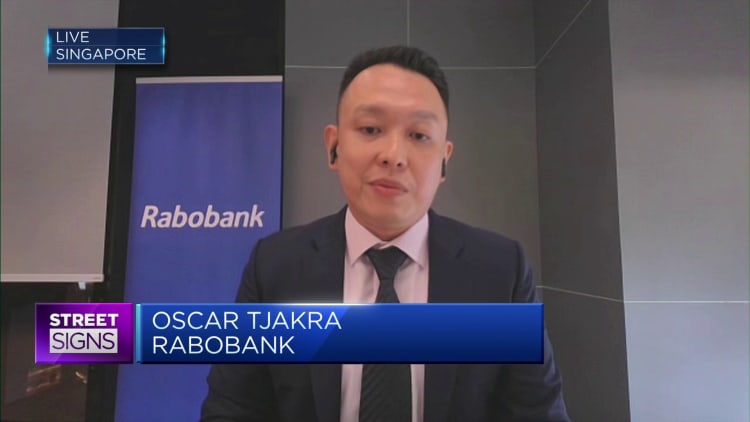Farmer Marin Iliev poses for a picture in his fields near the town of Saedinenie, Central Bulgaria on April 20, 2023.
Nikolay Doychinov | AFP | Getty Images
WASHINGTON — Russia has yet to decide if it will extend the terms of an international agreement that guarantees the food security of tens of millions, and its decision could further exacerbate the fallout of the Kremlin’s war in Ukraine.
By all accounts, the deal brokered in July to reopen key ports, known as the Black Sea Grain Initiative, is set to expire on May 18.
Earlier on Tuesday, Kremlin spokesman Dmitry Peskov said “there are still a lot of open questions” about a potential extension of the agreement.
“When the appropriate decision is made, we will inform you, this is the only thing I can say so far,” Peskov told reporters at a daily press briefing.
Before Russian troops poured over Ukraine’s borders last February, Kyiv and Moscow accounted for almost a quarter of global grain exports. Those shipments came to a severe halt for nearly six months until representatives from Ukraine, Russia, the United Nations and Turkey agreed to establish a humanitarian sea corridor and reopen three Ukrainian ports.
A ship carrying wheat from Ukraine to Afghanistan after inspection in the open sea around Zeytinburnu district of Istanbul, Turkiye on January 24, 2023.
TUR Ministry of National Defence | Anadolu Agency | Getty Images
Under the deal, more than 950 ships carrying more than 30.2 million metric tons of agricultural products have departed from Ukraine’s war-weary ports of Odesa, Chornomorsk and Yuzhny-Pivdennyi.
In Monday remarks before the U.N. Security Council, Martin Griffiths, the United Nations under secretary general for humanitarian affairs and emergency relief, said that more than 55% of that cargo has reached the world’s most famished countries.
He added that the latest analysis from the U.N. Food and Agriculture Organization indicates that global cereal prices have fallen close to 20% in the past year and international wheat prices have slumped to their lowest level since July 2021.
‘That’s not the deal we agreed to’
Russian Foreign Minister Sergey Lavrov speaks to the media at a news conference at the United Nations (U.N.) headquarters on April 25, 2023 in New York City.
Spencer Platt | Getty Images News | Getty Images
Moscow maintains that the current agreement has only benefited Kyiv since Russian fertilizer exports have not been able to travel the sea corridor in the same way Ukrainian grain has.
Last month, Russian Foreign Minister Sergey Lavrov renewed threats of abandoning the agreement.
“It was not called the grain deal it was called the Black Sea Initiative and in the text itself the agreement stated that this applies to the expansion of opportunities to export grain and fertilizer,” Lavrov told reporters during an April 26 press conference.
“That’s not the deal we agreed to on July 22,” he said, adding that there are dozens of Russian cargo ships loaded with approximately 200,000 tons of fertilizer waiting at European ports.
Moscow, therefore, has called for the resumption of exports of Russian ammonia via a pipeline through Ukraine to the port of Odesa.
Lavrov also said that one of Moscow’s top demands is for the Russian Agricultural Bank, or Rosselkhozbank, to return to the SWIFT banking system.
Moscow’s exclusion from SWIFT, which stands for the Society for Worldwide Interbank Financial Telecommunication, severed the country from much of the world’s financial networks in the days following the Kremlin’s full-scale invasion last February.



